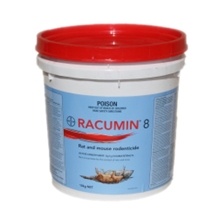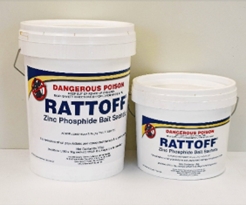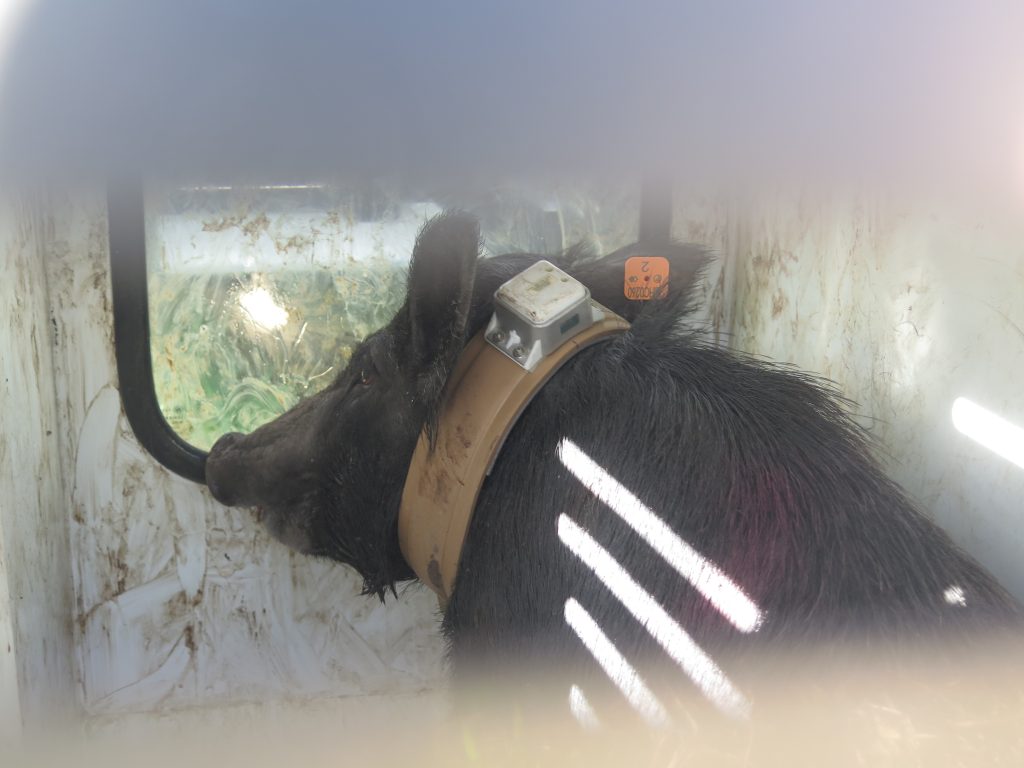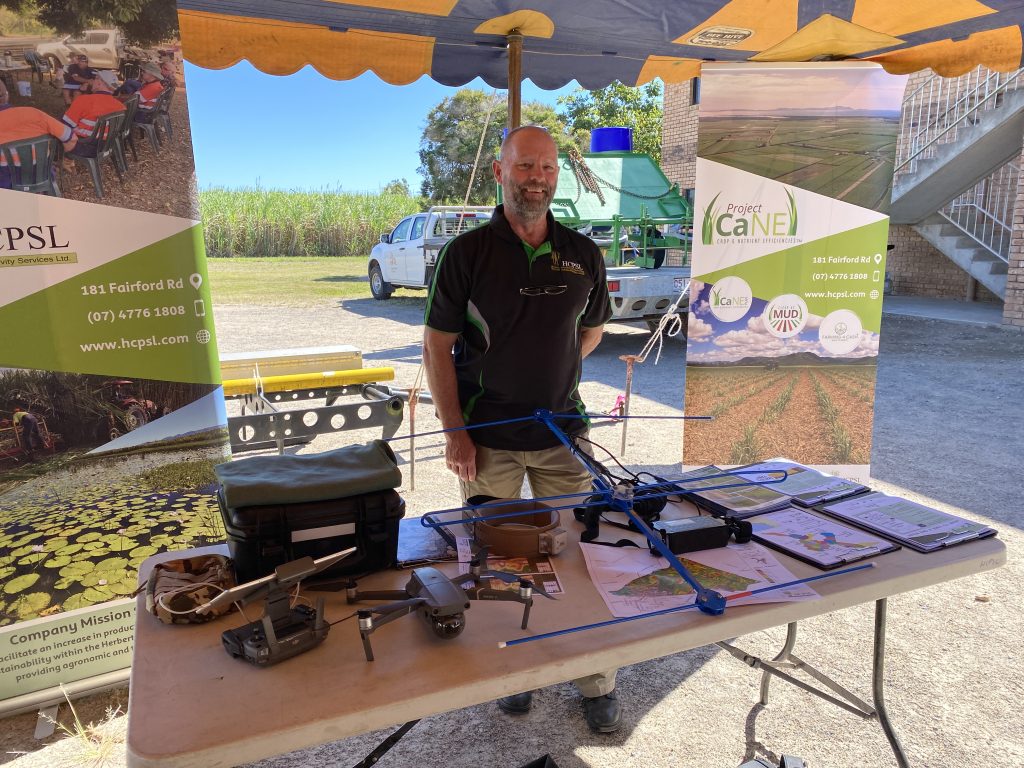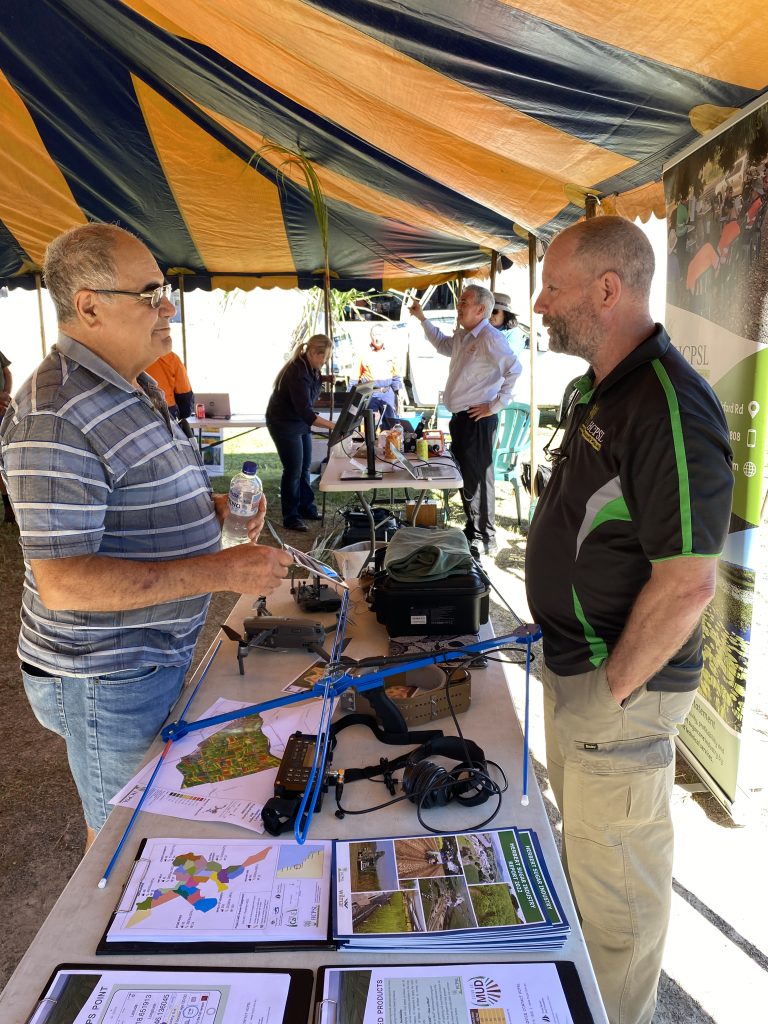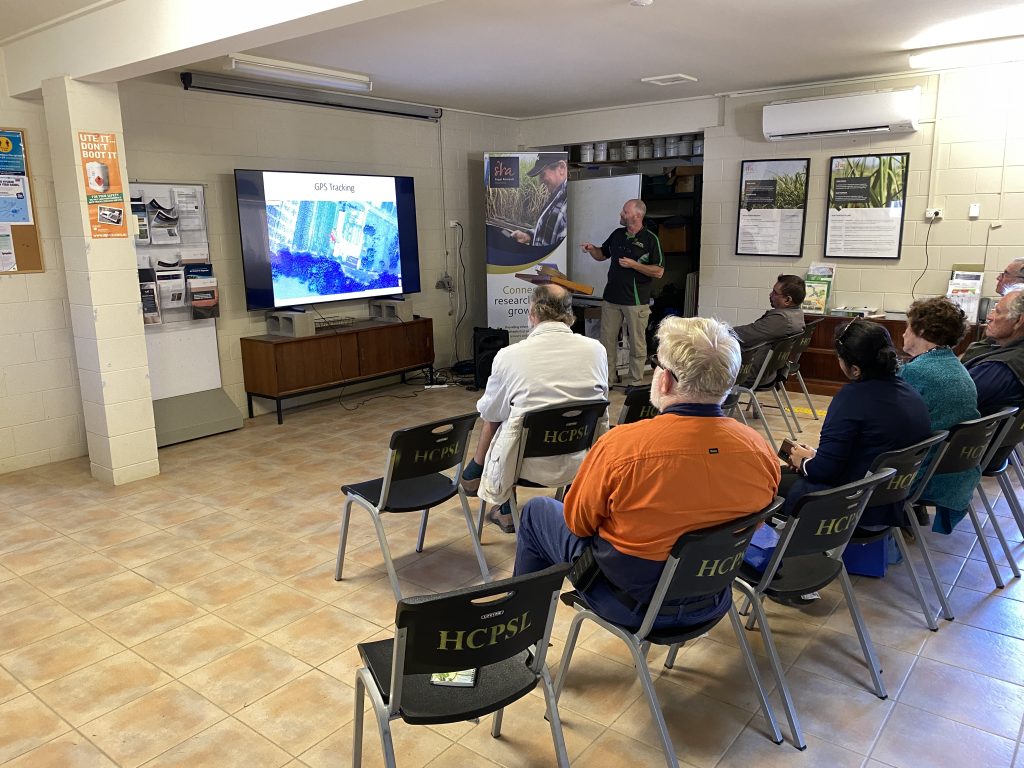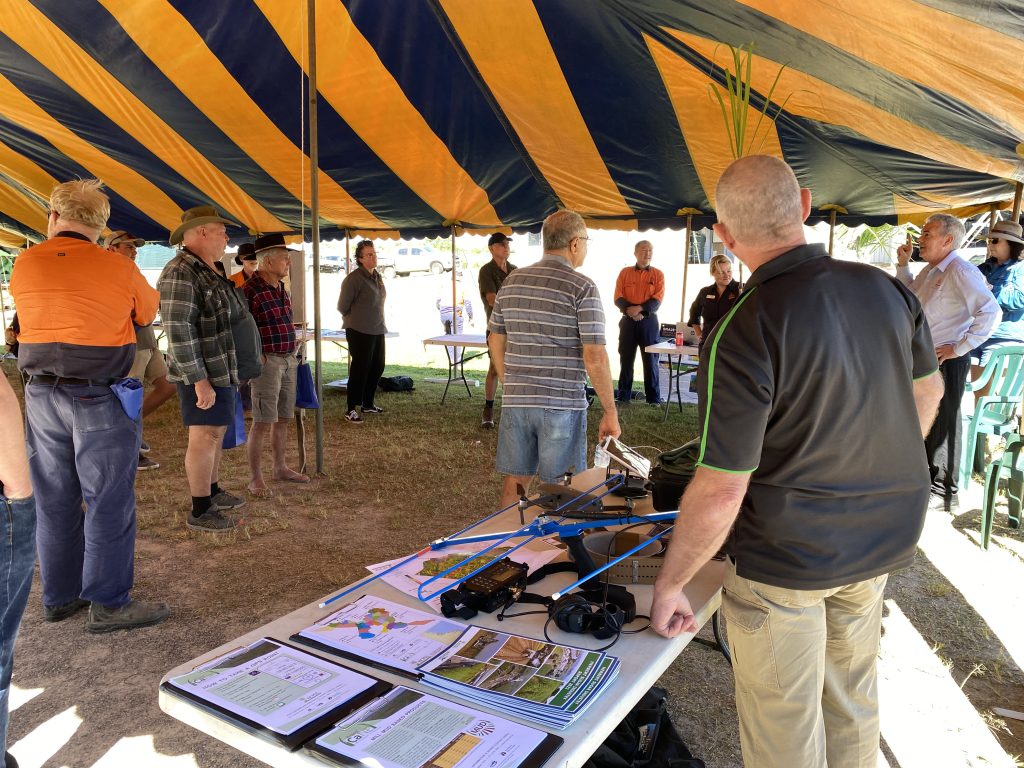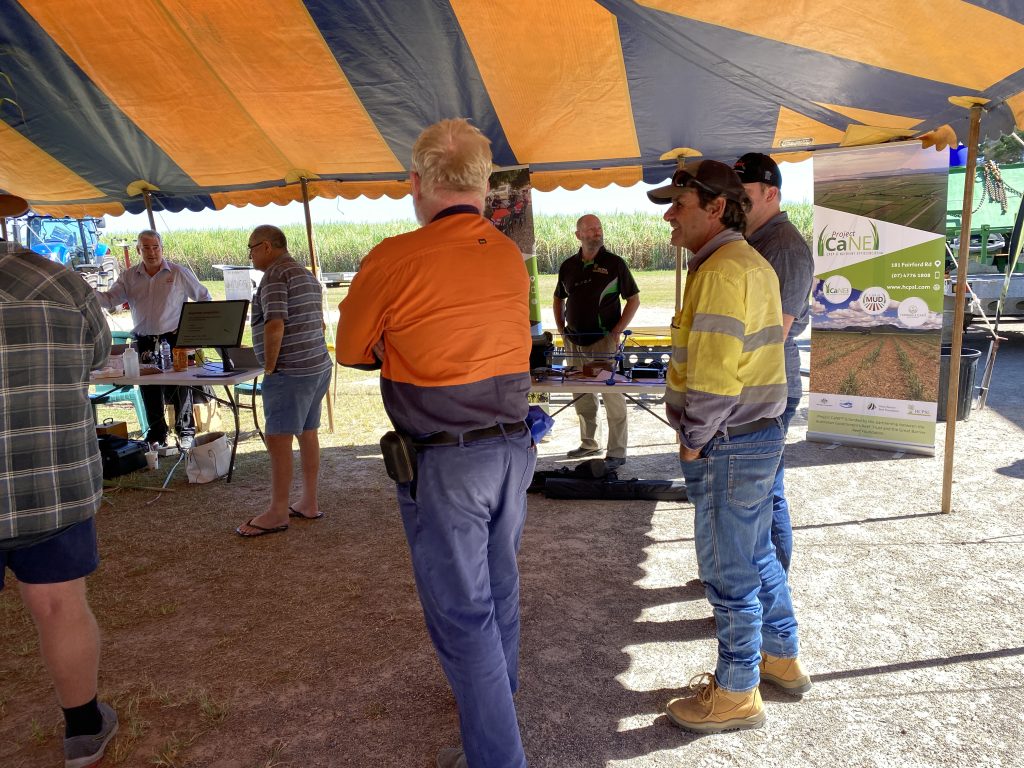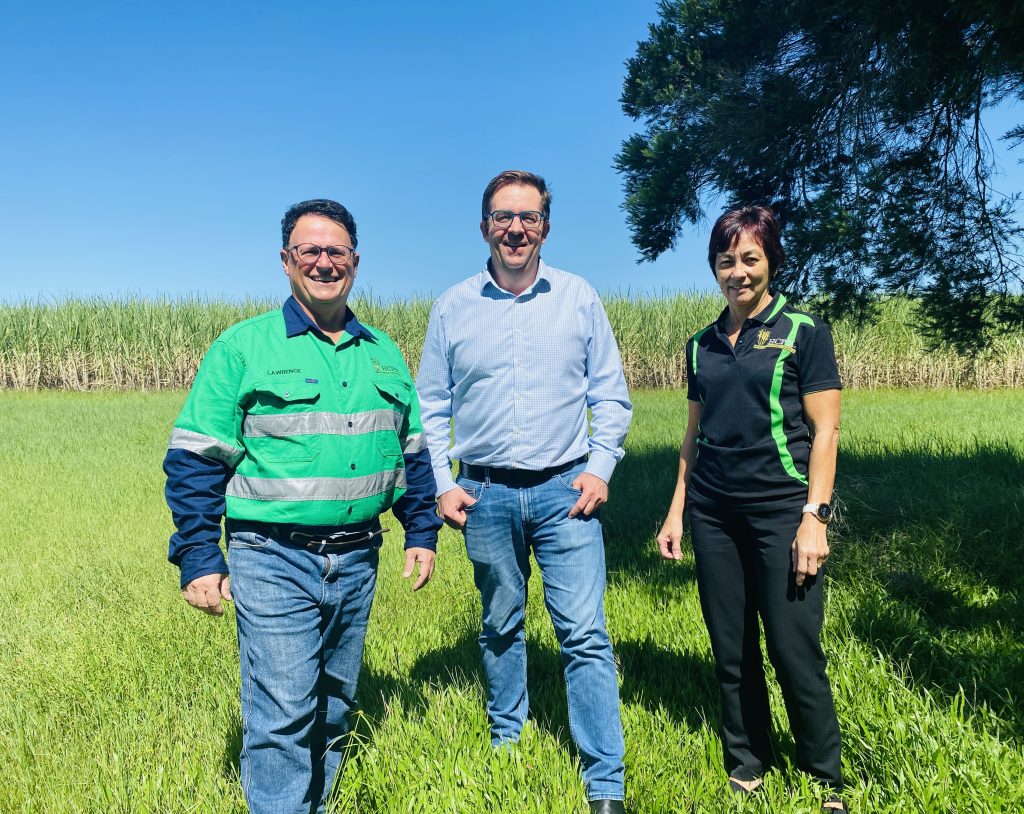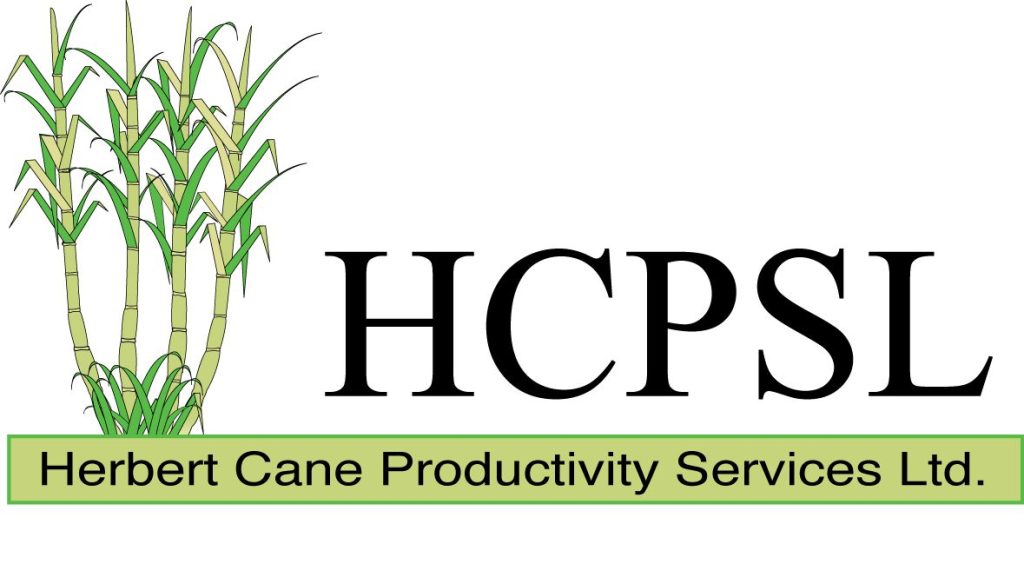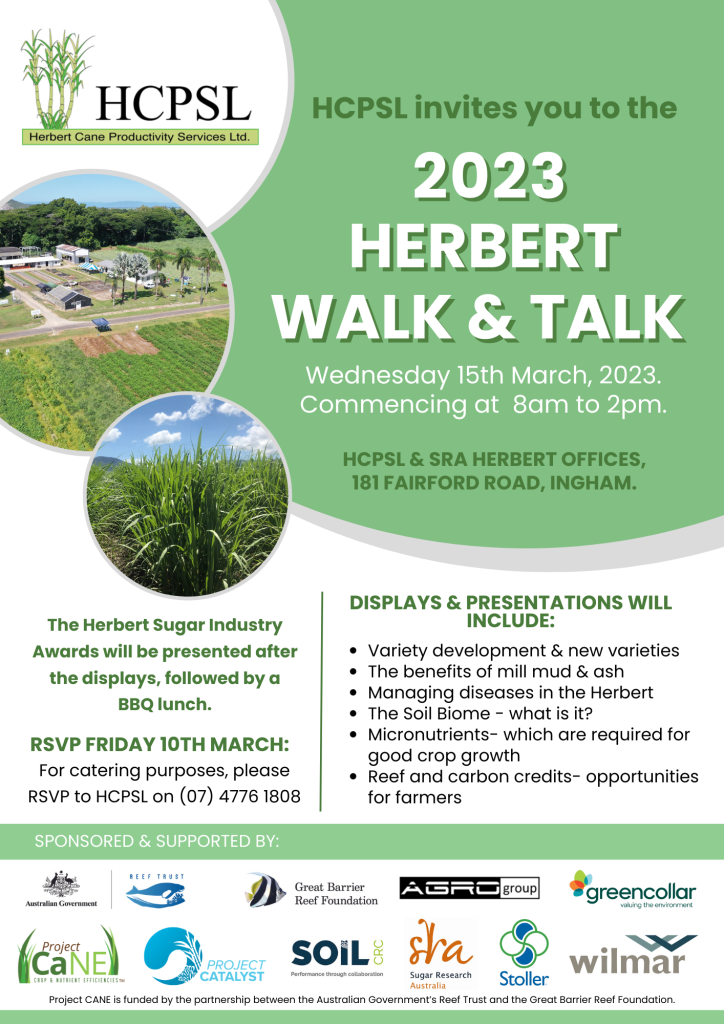HCPSL recently invited staff from Animal Control Technologies Australia (ACTA) to view firsthand the impact of rats on the current cane crop and the effectiveness of RATTOFF®.
ACTA and HCPSL staff inspected fields across the district on Wednesday the 9th of August, where RATTOFF® had recently been applied, to view the efficacy of the product and its impact on rat populations. Upon inspection of treated blocks, sachets were found to be opened by rats and there was a significant decline in rat damage of the treated blocks.
Photo above. A RATTOFF® sachet which has been opened by a rat found in a field treated in the Abergowie area.
RATTOFF® contains zinc phosphide coated grain which is quite stable while kept dry in the original packaging. Once eaten by the rat, the chemical quickly reacts with its stomach acids to produce poisonous phoshine gas in the gut area.
Research trials indicate that around 3-5 treated wheat granules were sufficient to kill a rat, hence one RATTOFF® sachet has the potential to kill about 50 rats. It is also not uncommon to find unopened sachets in a treated field due to of the sheer number of sachets applied and the effectiveness of the bait to control rats.
Rats will commonly drag the sachets back to their nests. Not only does this remove the sachets from above the ground but it also delivers the product directly to the colony.
The RATTOFF® sachet consists of a cellulose membrane that is water resistant and will break down over time due to UV light (usually occurring after 28 days). The sachet protects the treated wheat grains and provides a protective covering in the event of rain.
Research conducted tested the effect of additional palliative attractants to improve RATTOFF® uptake by rats. The trial results were non conclusive but found in some cases that the addition of linseed oil did improve uptake. ACTA and HCPSL staff also inspected young ratoon crops and found significant rat activity in these blocks. Growers are urged to start controlling rats in these crops to avoid carry over to next year’s crops.
Photo above- A rat borrow in young ratoon cane.
When treating a field, two applications of RATTOFF® may be required. The first application will target those rats above ground, not the lactating mothers and their young that are in borrows. A second application is required approximately 6-8 weeks later when these lactating mothers and the new juveniles come to the surface to feed. Growers should monitor the blocks to see if further applications are required.
RATTOFF® is registered for use in sugarcane crops through both ground and aerial applications by drone or helicopter. The recommended application rate of the product is 100 sachets per hectare or a total of 1kg of bait material per hectare. Racumin is the only other registered bait for use in sugarcane with baits needing to be placed in a bait station. The recommended rate for this product is 60-100g per bait station.
Photos above. Registered rat baits for use in sugarcane
Other anticoagulant baits are not registered for use in sugarcane because they pose a risk to wildlife and persist for long periods in most animals.
An Integrated Pest Management (IPM) program should be considered to reduce rat numbers. Rat baiting is only one tool in a farmer’s toolbox when other measures are not effective in managing rat population numbers. As a part of an IPM program consider the following: managing weeds in crop, drainage lines and riparian areas by mowing, spraying and revegetation of habitat areas.
For more information concerning the management options of rats please contact a HCPSL Extension Agronomist on 47761808 or refer to the HCPSL website.
Photo above- Fresh rat damage in sugarcane.








